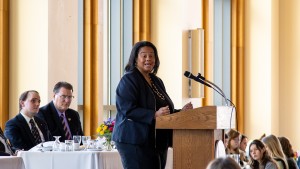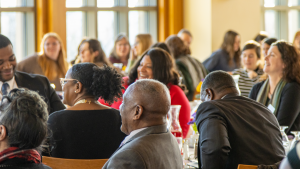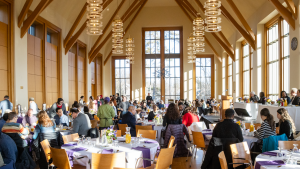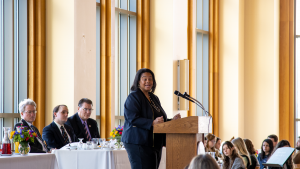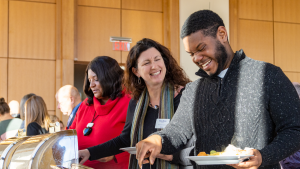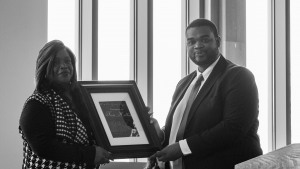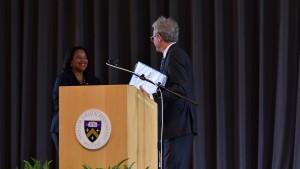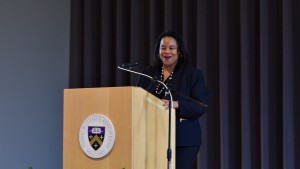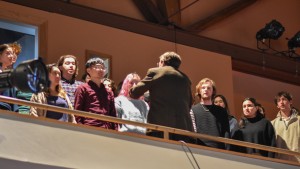Kenyon celebrated Martin Luther King Jr. with an event in Rosse Hall on Monday, Jan. 16, featuring a keynote speech delivered by Danielle R. Holley, dean of the Howard University School of Law in Washington, D.C. The annual Day of Dialogue program, organized by the Office of Diversity, Equity, and Inclusion and the Office of Campus Events, is designed to connect King’s legacy to current issues affecting Kenyon’s campus and the world.
(Watch a recording of the event.)
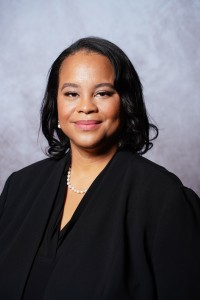 Holley is a scholar of education law and civil rights and an expert on diversity in the legal profession and higher education. She joined Howard University School of Law, the oldest historically Black law school in the United States, in 2014. Holley holds a Bachelor of Arts from Yale University and a law degree from Harvard Law School.
Holley is a scholar of education law and civil rights and an expert on diversity in the legal profession and higher education. She joined Howard University School of Law, the oldest historically Black law school in the United States, in 2014. Holley holds a Bachelor of Arts from Yale University and a law degree from Harvard Law School.
She was introduced by Acting President Jeff Bowman, who commented on the history of Martin Luther King Jr. Day, the importance of active annual observance of the holiday, and the challenge of moving the Kenyon community in the direction of King’s concept of the “Beloved Community.”
Following this introduction, Holley began her address by quoting from a speech King delivered in 1967, titled “Where do we go from here?”, in which King outlined his philosophy of non-violence:
“I’m concerned about justice; I’m concerned about brotherhood; I’m concerned about truth. And when one is concerned about that, he can never advocate violence. For through violence you may murder a murderer, but you can’t murder murder. Through violence you may murder a liar, but you can’t establish truth. Through violence you may murder a hater, but you can’t murder hate through violence. Darkness cannot put out darkness; only light can do that.”
She then reflected on King’s question, “Where do we go from here?”, by remarking on several issues that have arisen recently in America: including an increase in white supremacist hate and antisemitism, and attacks on anti-discrimination legislation and policies. Holley concluded by asking the audience what they planned to do to live out King’s values, and challenged them to do so between now and next year’s Martin Luther King Jr. holiday.
To open and close the program, Kenyon’s Chamber Singers, directed by Professor of Music Benjamin Locke, offered two selections: “My Lord, What a Mornin’” arranged by Harry T. Burleigh, and “Didn’t My Lord Deliver Daniel?” arranged by Moses Hogan.
The Day of Dialogue event also included two moderated breakout sessions. Associate Provost and Professor of English Ted Mason hosted a session regarding the future of racial justice and equity. Dean of Student Development Robin Hart Ruthenbeck and Dean for Academic Advising and Support Tom Hawks led discussion of the question “How may we have difficult conversations about race in a highly polarized environment?”
Prior to the afternoon program, Knox County community leaders gathered at Kenyon’s Peirce Dining Hall for the 20th annual Martin Luther King Jr. Celebration Breakfast, co-sponsored by Kenyon and Mount Vernon Nazarene University. Holley also spoke at the breakfast, with remarks titled “Building the Beloved Community.”
